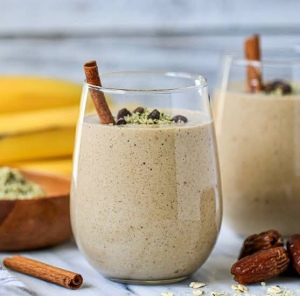When followed correctly, a high-protein diet can be helpful to intestinal health. Here’s how a high-protein diet can help your gut.
Maintaining the Integrity of the Gut Barrier: A sufficient protein intake is required to keep the intestinal barrier intact. The gut barrier functions as a protective barrier, keeping dangerous chemicals out of the bloodstream. Protein is essential for repairing and renewing gut lining cells, ensuring a healthy gut barrier.
Promoting Healthy Gut Microbiota: Protein-rich foods including lean meats, fish, eggs, lentils, and dairy products can supply critical amino acids that promote the growth and diversity of good gut bacteria. A diversified and well-balanced gut microbiota is linked to better gut health and general well-being.

Increasing Short-Chain Fatty Acids (SCFAs): SCFAs are created by gut bacteria during dietary fiber fermentation. While protein does not directly create SCFAs, a high-protein diet can indirectly support their formation. You can supply the necessary substrate for gut bacteria to make SCFAs, which have been related to reduced inflammation and improved gut health, by ingesting enough amounts of dietary fiber in addition to protein.
Improving Satiety and Blood Sugar Control: Protein is well-known for its satiating effect, which can aid with appetite regulation and reduce overeating. By consuming enough protein, you can better manage your blood sugar levels and avoid significant spikes and crashes, which can harm your gut health.
Guidelines for Adopting a High-Protein Diet for Gut Health

1. Select Lean Protein Sources: Choose lean meats, poultry, fish, eggs, dairy products, legumes, and plant-based protein sources including tofu, tempeh, and quinoa.
2. Eat Fiber-Rich Foods: Along with your protein sources, eat a range of fiber-rich foods such as fruits, vegetables, whole grains, and legumes. Fiber promotes good digestion and feeds beneficial gut bacteria.
3. Maintain Hydration: Drink plenty of water to aid digestion and prevent constipation, which is a potential side effect of a high-protein diet.
4. Strive for Balance: While protein is vital, a well-rounded diet that includes carbohydrates, healthy fats, and a range of nutrients is essential for overall health and intestinal function.
Here’s a sample meal plan for a high-protein diet that promotes gut health
Meal 1: Breakfast

• Spinach and Mushroom Omelette: Make a three-egg omelette with spinach, mushrooms, and feta cheese.
• Side of Greek Yogurt: A small serving of plain Greek yogurt topped with a handful of berries and a sprinkling of chia seeds.
Meal 2: Snack

• Protein Smoothie: Blend together a scoop of protein powder (such as whey or plant-based), almond milk, a tablespoon of nut butter, and a handful of spinach. Optionally, add a small amount of fruit for added flavor.
• A tiny handful of mixed nuts (almonds, walnuts, and pistachios, for example).
• Fruit, such as an apple or a handful of berries.
Meal 3: Lunch

• Grilled Chicken Salad: Make a salad with grilled chicken breast, mixed greens, cherry tomatoes, cucumber, avocado, and a dressing of olive oil and lemon juice.
• Quinoa or brown rice as a side: A little portion of cooked quinoa provides plant-based protein and fiber.
Meal 4: Snack

• Greek Yogurt Parfait: Layer plain Greek yogurt with mixed berries, crushed almonds, and a sprinkle of cinnamon.
• Celery sticks or carrot sticks dipped in hummus or Greek yogurt-based dip.
• Homemade Kombucha drink
Meal 5: Dinner

• Baked Salmon: Season a salmon fillet with herbs and spices and bake it until cooked through.
• Roasted Vegetables: Toss a variety of bright vegetables (such as broccoli, bell peppers, and carrots) with olive oil, garlic, and herbs before roasting in the oven.
Meal 6: Late night Snack (optional)

• Side of Fermented Foods: As a gut-friendly complement to your dinner, include a small serving of sauerkraut or kimchi.
• Cottage Cheese with Flaxseed: Enjoy a serving of cottage cheese topped with ground flaxseed and a drizzle of honey for added flavor.
Remember to change portion quantities and particular components according to your personal dietary needs and tastes. It’s also crucial to acquire enough fiber from fruits, vegetables, and whole grains to keep your gut healthy.
Before beginning any new diet plan, consult with a medical professional or certified nutritionist, especially if you have specific health issues or dietary preferences. They can give you unique guidance based on your specific needs.


Leave a reply to msaineecbeland Cancel reply